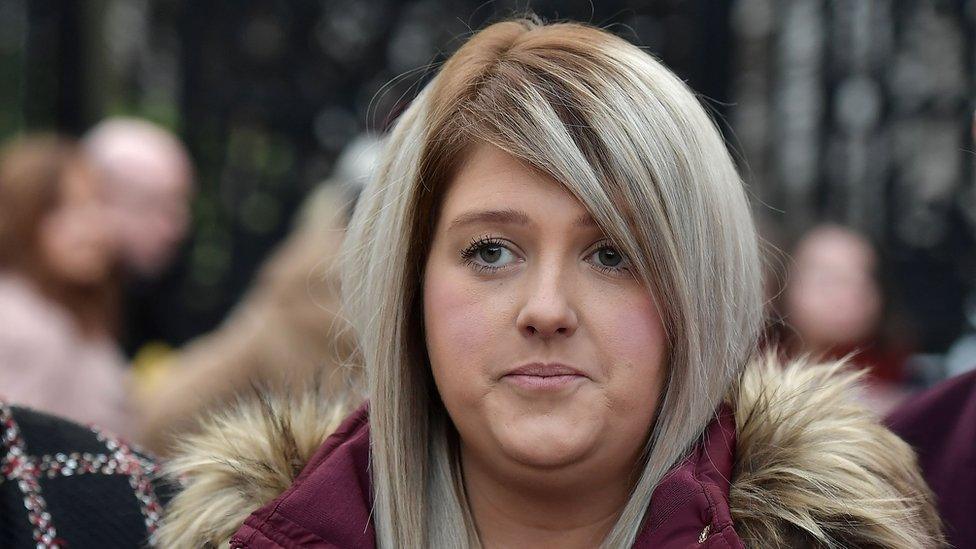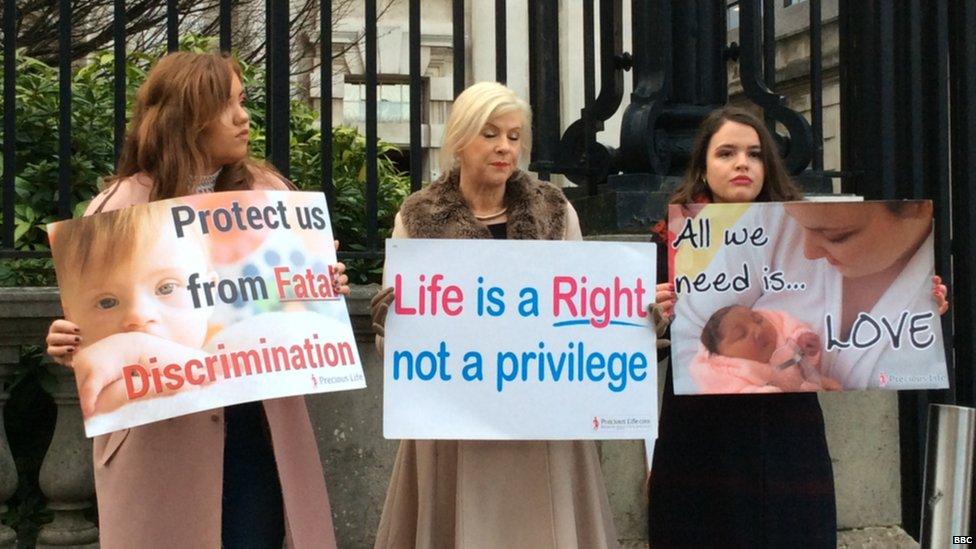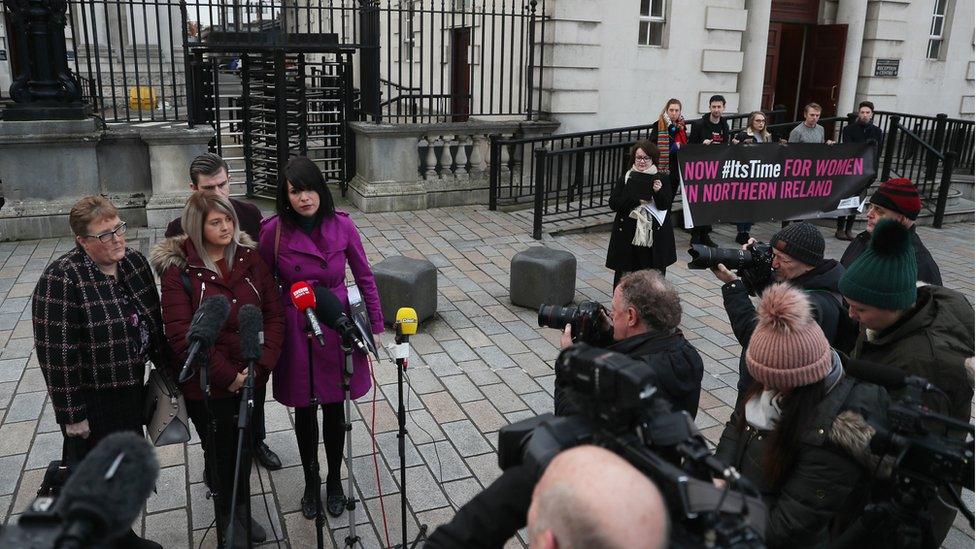Abortion law: Abortion due to disability 'prohibited'
- Published

Sarah Ewart travelled to England in 2013 for a termination when she was denied an abortion in Northern Ireland
Terminating a pregnancy because of a disability is prohibited by international treaty, a court heard on Thursday.
Attorney General John Larkin QC also told the High Court a woman challenging Northern Ireland's abortion laws does not have the necessary legal standing to do so.
Sarah Ewart was denied an abortion in 2013, despite doctors saying her baby would not survive outside the womb.
She went to England for a termination.
Counsel for Mrs Ewart countered that she has been forced to put off having any more children because of fears they would have the same fatal condition.
Final submissions were made on Thursday.
Before rising after two days of argument, Mrs Justice Keegan said: "I obviously have a lot to think about."
What happened in court on Thursday?
Lawyers for Mrs Ewart contended it should be highly persuasive that the Supreme Court decided in June, by a majority, that the law in Northern Ireland is incompatible with Article 8 of the European Convention on Human Rights in fatal foetal abnormality cases.
They said Mrs Ewart's shock and horror at discovering her foetus had no skull or developed brain was compounded by enduring the trauma and humiliation of travelling to England for the procedure she likened to being "on a conveyor belt".
But Mr Larkin argued that the United Nations Convention on the Rights of Persons with Disabilities extends to a prohibition on discrimination before birth and has been designated as an EU treaty.
He told the court: "The unborn child belongs to the human race.
"Selecting out some unborn children for abortion on the basis of disability is prohibited."

Anti-abortion campaigners protested outside court on Wednesday
During submissions, Mr Larkin also claimed Mrs Ewart's challenge must fail because she did not meet the criteria to challenge the law.
In June, Supreme Court judges said in order for the law to be challenged it would require a case to be brought by a woman who was pregnant as a result of sexual crime or who was carrying a foetus with a fatal abnormality.
Mr Larkin acknowledged that Mrs Ewart went through a "dreadful experience" in 2013.
He said that if she had issued proceedings at that stage she could have declared herself a "victim".
But Mrs Ewart's barrister, Adam Straw, told the court current abortion rules render the mother-of-two a "victim".
He said: "She had to put on hold her wish to have more children because of the concerns about the same trauma which happened to her in 2013 happening again."
The attorney general argued that it was hypothetical to suggest the same condition will occur in any future pregnancy.

Sarah Ewart was accompanied to court on Wednesday by her mother and Grainne Teggart of Amnesty International
Why is the law different in Northern Ireland?
The 1967 Abortion Act, which liberalised the rules in Great Britain, was never extended to Northern Ireland.
Currently, a termination is only permitted in Northern Ireland if a woman's life is at risk or if there is a risk of permanent and serious damage to her mental or physical health.
Rape, incest or diagnoses of fatal foetal abnormality (FFA) - where medics believe that a baby will die before, during or shortly after birth - are not grounds for a legal abortion in Northern Ireland.
However, anti-abortion campaigners argue that doctors cannot reliably predict the timescale of death and they point to several cases where babies have defied the prognosis and survived into adulthood.
Last year a majority of Supreme Court judges held that those restrictions breach the UK's human rights obligations.
The law on abortion in Northern Ireland explained
They still rejected the case mounted by the Northern Ireland Human Rights Commission, however, because it did not have the necessary legal standing to bring such a challenge.
- Published7 June 2018
